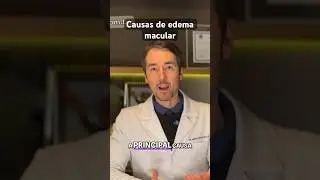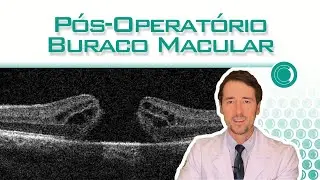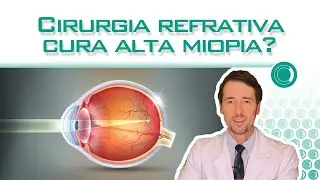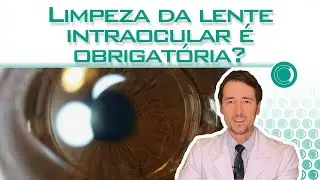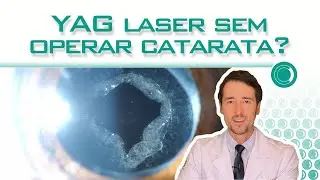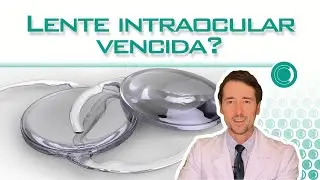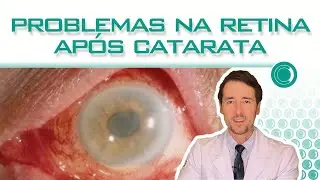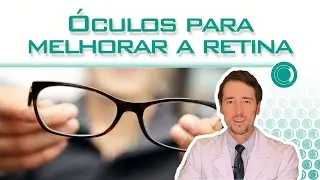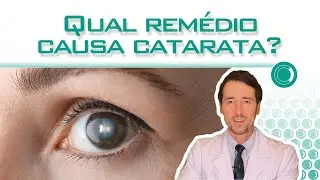Can Intraocular Lenses Be Fitted in Patients with Retinal Problems?
Understanding the Relationship Between Cataract Surgery and Retinal Diseases
When we think of cataract surgery, many doubts arise, especially for those who already have retinal problems. After all, is the intraocular lens, which replaces the opaque natural lens during surgery, safe for those who have already had a retinal condition? In this article, we will shed light on this essential topic for eye health, addressing the interactions between cataract surgery and retinal diseases.
What Is Cataract and How Does It Affect Vision?
Cataracts are a condition that occurs when the lens of the eye, the natural lens that helps focus light on the retina, becomes opaque. This opacity prevents light from passing properly through the lens, resulting in blurred or cloudy vision. The only effective solution for cataracts is surgery, where the opaque lens is removed and replaced with an artificial intraocular lens (IOL).
Retinal Problems and Cataracts: A Common Combination
Patients who have retinal problems, such as retinal detachment, diabetic retinopathy or age-related macular degeneration (AMD), have an increased risk of developing cataracts early on. This is because many of these conditions or their treatments (such as retinal detachment surgery) can accelerate the process of opacification of the lens.
The Importance of the Intraocular Lens in Cataract Surgery
During cataract surgery, the removal of the opaque lens is followed by the insertion of an intraocular lens. This lens is crucial for restoring vision, as it replaces the natural lens, allowing light to be correctly focused on the retina. Without this lens, vision would be extremely compromised, requiring very strong glasses that would still not provide satisfactory vision.
Intraocular Lenses in Patients with Retinal Problems
Although the intraocular lens is essential, any type of lens should not be implanted in patients with retinal diseases. Bifocal or trifocal lenses, for example, require a macula (the central part of the retina) in perfect condition in order to work properly. The macula needs to be capturing light with 100% efficiency so that these multifocal lenses can offer clear vision at various distances. If the macula is compromised, such as in cases of diabetic macular edema or macular degeneration, these lenses may not provide the expected results.
On the other hand, extended focus lenses, which also offer some near vision, are a viable option for patients with certain retinal problems. Studies indicate that these lenses do not impair vision in patients who have undergone surgery such as macular hole surgery. Toric lenses, used to correct astigmatism, generally have no contraindications for those with retinal diseases.
Personalization is Key: Each Case is Unique
It is crucial to understand that the choice of intraocular lens must be personalized. Only a detailed assessment of the retina, lens, cornea and even the presence of dry eye will allow the ophthalmologist to determine the most suitable lens for each patient. What works for one may not be ideal for another, which is why a doctor's consultation is irreplaceable.
If what has been said here differs from the recommendations you have received from your doctor, it is likely that there are nuances in your specific case that justify this difference. Therefore, if you have any doubts, talk openly with your ophthalmologist.
Conclusion
Cataract surgery is a safe and effective procedure for most patients, including those with retinal diseases. However, the choice of intraocular lens must be made carefully, taking into account the specific conditions of the retina. This ensures that the procedure not only restores vision, but also preserves long-term eye health.
This video and its comments are not a substitute for a medical consultation and are for educational purposes only. They should not be used for decision-making purposes, which requires a face-to-face consultation with a specialist doctor.
Author:
Dr. Mário César Bulla
Cremers 28120
Ophthalmologist - Retina Specialist
www.clinicabulla.com.br
www.especialistaemretina.com.br
Instagram: @retina.bulla
Video URL: • Quem tem problema na retina pode impl...
@Retina e Vítreo
#retina
#ophthalmology
#vision
0:00 Can people with retinal problems get an intraocular lens?
0:44 What are cataracts and intraocular lenses?
1:39 What is cataract surgery like?
2:20 Cataracts and retinal problems.












